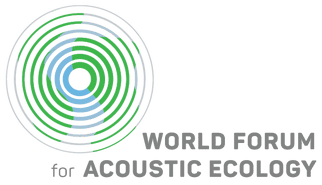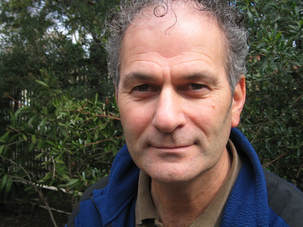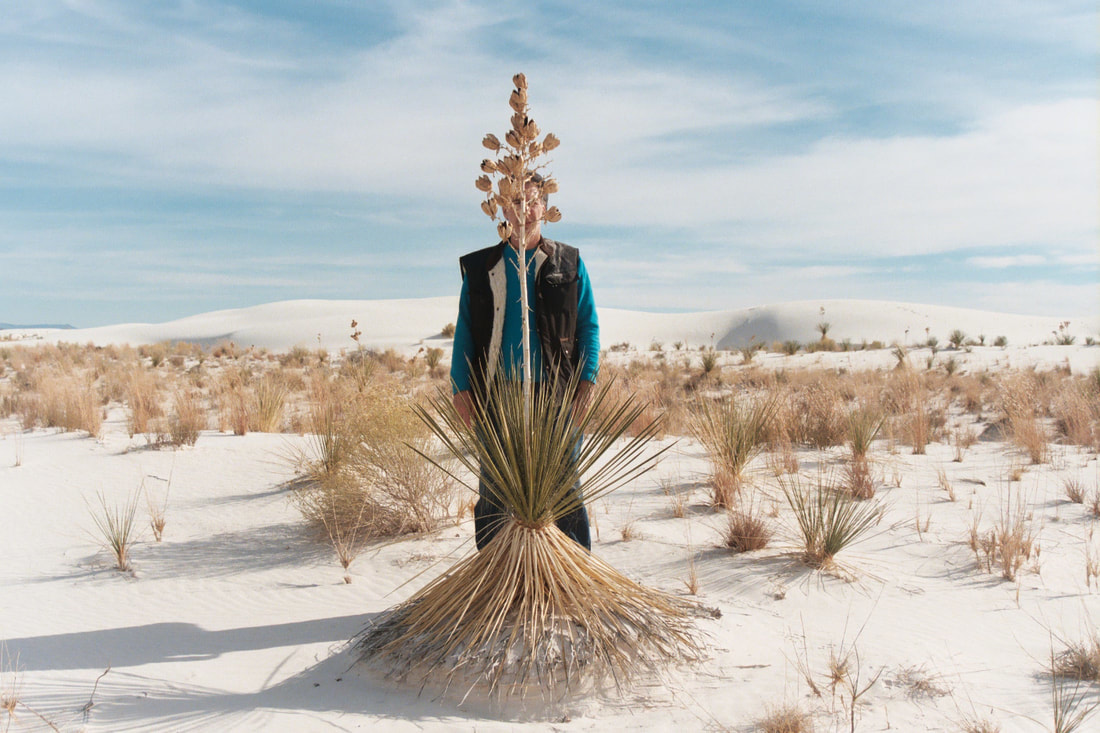|
Rob Mackay - Flight of the Monarch
Rob has co-produced and presented a 30 minute radio programme for BBC Radio 3's Between the Ears called Flight of the Monarch. It was Pick of the Day in the Radio Times and is available to listen to online here: https://www.bbc.co.uk/programmes/m000qyhz It partly documents Following the Flight of the Monarchs, an acoustic ecology project in which streamboxes are being installed across monarch butterfly migration routes for ecosystem monitoring and the creation of artworks and telematic performances. https://followingtheflightofthemonarchs.com Nikki Sheth Nikki Sheth presents:
Alex De Little - Sonic Acts of Noticing Engaging with practices of field recording in Sheffield, Sonic Acts of Noticing proposes careful listening as a way to (re)think and (re)make the spaces of the high street in ways that draw attention to forms of collectivity, and support productive and agonistic relations, intensities and concerns. This project will be shown as an installation at the British Pavillion at this year’s Venice Architecture Biennale, and through an audtio-textual web listening environment (https://sonicactsofnoticing.org/). The project is based in and supported by the School of Architecture at Sheffield Hallam, and a collaboration with Julia Udall and Jon Orlek.
Aki Pasoulas
A new research project started in September 2020 at the University of Kent, which investigates the role of sound in influencing our experience of spaces and places. It focuses on heritage sites and it aims to recreate soundscapes of bygone ages based on historical documentation. The project will run until the end of 2022 and is led by Dr Aki Pasoulas, a board member of UKISC. Further details: https://research.kent.ac.uk/sonic-palimpsest David de la Haye - Land Lines Project: Nature Revealed David has created an 'ASMR Edition' EP, which was released alongside his Land Lines commission: In times when personal connections often take place online, the concept of digital intimacy gains value. This EP, released to complement my 'Land Lines Project: Nature Revealed' commission, explores the sound of freshwater soundscapes in the context of Autonomous Sensory Meridian Response (ASMR). The close-up recording, repetitive patterns and binaural production techniques align with the genre's aesthetics, bringing ecological listening to our home environments. More on the project can be found at: https://landlinesproject.wordpress.com/hidden-sounds-nature-revealed-by-david-de-la-haye/
The Midwest Society for Acoustic Ecology (MSAE) out of the United States is excited to join the World Forum for Acoustic Ecology as official affiliate. In early 2020, MSAE board members worked with the Chicago-based arts group NON:op Open Opera Works to organize Hear Below: Listening to the Chicago Underground. This underground pedestrian walkway sound walk and active listening artistic intervention was curated as part of the annual College Art Association conference. Read and hear more about this listening experience online at: https://mwsae.org/hear-below-listening-to-chicago-underground-3/
With the onset of the COVID-19 pandemic, the MSAE needed to adjust it’s scheduled summer programming but was able to successfully do so and offer the annual Night Out in the Parks programming as a series of virtual soundwalks presented as an online screening of video and sound works that emphasized the relationship between natural and non-human worlds in Chicago parks. The virtual event featured nine teaching artists who created five videos to address diverse themes and interests including nature, queering in the parks, disability, and citizen science.
In addition to the five videos screened at a virtual event hosted by the MSAE, two of the videos premiered in the Chicago Park District’s new Your Night Out At Home program in October 2020. Learn more about this program on the MSAE website: https://mwsae.org/virtual-soundwalks-2020/ The Soundscape Association of Japan (parent organization of JASE) has re-organized as a general incorporated association since April, 2020 and met the following events in 2020: The 2020 General Meeting and Symposium was held on the 20th of June (Zoom meeting); The 2020 Spring and Autumn Research Seminars were held online on the 20th of June and the 29th of November respectively; The following regular meeting series, titled “Talking About My Work,” were given online by Keiko Torigoe (August 22), Shin-ichiro Iwamiya (October 9) and Naoko Tanaka (December 11). The SAJ is presently working to set up the Prizes of SAJ.
Questions or follow up may be directed to Tadahiko Imada ([email protected]). The Hellenic Society for Acoustic Ecology has recently had its General Assembly and elections through an internet conference platform. The newly elected Board includes Katerina Tzedaki (president), Kostas Paparrigopoulos (vice-president), Ioanna Etmektsoglou (secretary), Kimon Papadimitriou (treasurer) and Panos Amelidis (member). Andreas Mniestris remains the representative of HSAE in the WFAE.
Due to COVID-19 restrictions, the scheduled National Conference in Thessaloniki, Greece which was planned for the Fall of 2020, was postponed. The Society's activities during the past year included the online publication of the Proceedings of the 5th Hellenic Conference for Acoustic Ecology “ Sound, Embodiment; Education” which had taken place in Kalamata, Peloponese, Greece, in September 2018. The Proceedings were edited by Andreas Mniestris, Kostas Paparrigopoulos and Dimitris Sarris. Katerina Tzedaki organized the mailing list of members and friends of the HSAE, and the communication with and between members has been facilitated considerably. In addition to the latest Proceedings, the library of HSAE received a new e-book in two versions (English and Greek), entitled: “A Sound-Based Education: for Listening, Appreciating and Co-creating the Soundscapes we Live in” (I. Etmektsoglou, Z. Dionyssiou, A. Mniestris), which was developed as part of the Erasmus+ Project: “The Soundscape we live in”. Download the e-book from the site of the project or the library page of HSAE. Report by I. Etmektsoglou. Canadian Association for Sound Ecology (CASE) AGM
CASE had its Annual General Meeting on Jan 6, 2021 and said farewell to Eric Powell and Tyler Kinnear, thanking them for their outstanding contributions to CASE. CASE welcomes Milena Dromeva and Wendalyn Bartley as new board members and looks forward to growth in the new year. “Listening in the Time of COVID” The CASE project, “Listening in the Time of COVID”, congratulates the three winning contest submissions: First Place - PrOphecy Sun, Spiraled Mothering; Second Place - Shumalia Hemani, Perils of Heavy Rainfall; and, Third Place - Diego Bermudez Chamberland, Ma Fenêtre à Moi. This was a Canada-wide call for original soundworks related to the current pandemic; the three selected soundscape compositions can be listened to at Listening in the Time of COVID. New Adventures in Sound Art New Adventures in Sound Art (NAISA) are planning two online participatory events in 2021 that involve public engagement across Canada and internationally in soundscape recording and discussion. The first will have online meetup workshops culminating in livestreams of daybreak soundscapes for the Reveil broadcast on May 1 organized by Sound Camp and the Acoustic Commons groups in the UK. The second will also have meetup workshops leading to a soundscape broadcast on World Listening Day (July 18). More details to follow at https://www.naisa.ca/ Darren Copeland (NAISA) [email protected] Follow NAISA at:
The World Soundscape Project and Barry Truax Recent WSP Database additions (guest password from [email protected]):
Dear Colleagues and Friends: It is with great sadness that I write to inform you that Nigel Frayne passed away on Friday, January 6, 2018. His death comes after many years of battling cancer. Until his final days, Nigel was actively helping the leadership of the World Forum for Acoustic Ecology (WFAE), as Treasurer, and its Australian affiliate, the Australian Forum of Acoustic Ecology (AFAE). Nigel joined the WFAE in 1996, a few years after its founding, when he met Hildegard Westerkamp. She wrote an eloquent piece about this experience, titled "Thanking Nigel" on pages 5-6 of the 2010 edition of Soundscape: The Journal of Acoustic Ecology, Volume 10. Hildegard describes the essential role Nigel subsequently played in the WFAE's future. Not only defining the organizational structure of the WFAE, but for over 20 years, Nigel served as a steadfast friend and supporter of the new leadership of which I am honored to be a part. This, with my mentors and a new younger generation of forward-thinking scholars, artists, researchers, and designers, is Nigel's gift.
Of Nigel's role, AFAE President and WFAE Vice President, Dr. Leah Barclay wrote: Nigel Frayne had an incredible impact on the field of acoustic ecology. As a founding member of the AFAE, he spearheaded many activities over the years, including the 2003 WFAE conference in Melbourne; a pivotal event for many people on a national and international scale. As the first and longest-standing chair of the WFAE, his commitment, passion, persistence and dedication transformed the organisation into a truly global network. Nigel’s vision to make the WFAE a more manageable organisation resulted in a restructure into clusters of groups with geographical administration and governance. This was the beginning of WFAE affiliates, which is how we continue to operate internationally today. In December 2017, Biosphere Soundscapes and the Queensland Conservatorium Research Centre are hosting “Perspectives on Listening” an international symposium and workshop bringing together an interdisciplinary group of researchers to explore the role of sound in our environment.
Biosphere Soundscapes is an interdisciplinary research project investigating the creative and scientific possibilities of acoustic ecology through environmental field recording, biodiversity monitoring and a diversity of creative projects spanning four continents. The project works in partnership with multiple organisations to develop and deliver socially embedded acoustic ecology research in collaboration with the communities of UNESCO biosphere reserves across the world. Biosphere Soundscapes is part of an exciting portfolio of interdisciplinary collaborations across creative arts and environmental sciences emerging at Griffith University. Perspectives on Listening will introduce the interdisciplinary possibilities of acoustic ecology and ecoacoustics and highlight the value of listening in changing environments. The three-day program features keynotes from Steven Feld (USA) and Monica Gagliano (AU) in addition to panels, research presentations, live performances, immersive installations, sound walks and field trips across the rainforests of the Sunshine Coast and aquatic ecosystems in Noosa Biosphere Reserve. Steven Feld is a leading American ethnomusicologist, anthropologist, and linguist who will present the 25th anniversary edition of ‘Voices of the Rainforest’ – his composition of a day in the life of the Bosavi rainforest and Kaluli people in Papua New Guinea. The work has touched audiences concerned with ecological integrity, interspecies art, and cultural survival, and remains in popular circulation through Smithsonian Folkways. Monica Gagliano will speak about plant bioacoustics – a new field she has pioneered by demonstrating for the first time that plants emit their own ‘voices’ as well as detect and respond to the sounds surrounding them. Dr Gagliano is a Research Associate Professor in Evolutionary Ecology at the University of Western Australia and her research is radically transforming our perception of plants and more generally, nature. The event is endorsed by the World Forum for Acoustic Ecology (WFAE) and will feature virtual contributions from across the world supported by Arts Front, including artists developing new technologies for live streaming audio in remote locations, scientists pioneering new research in freshwater ecoacoustics and artists from Vanuatu speaking about indigenous perspectives on listening and climate change. The creative program includes an immersive listening room and the Queensland premiere of Dr Leah Barclay’s new spatial sound installation “Migration Patterns: Saltwater” which features marine hydrophone recordings from the Great Sandy Biosphere Reserve. Perspectives on Listening concludes with sonic explorations through subtropical rainforests on the Sunshine Coast and a closing ceremony in the Noosa Biosphere Reserve. This is an intimate event with limited capacity, registration for the three days is $120 ($85 for students). Biosphere Soundscapes and the Queensland Conservatorium Research Centre are also encouraging virtual registration and are working towards measuring and minimising the carbon impact of this event as part of an initiative to encourage environmentally sustainable research practices. The virtual registration ($40) is open for delegates anywhere in the world and will enable participation from community collaborators in remote locations across Mexico, India, Indonesia and Vanuatu. ‘Perspectives on Listening’ is a dynamic participatory event encouraging dialogue and collaborations that continue to promote Queensland as a global focal point for acoustic ecology. The outcomes from this symposium will inform the development of Biosphere Soundscapes programs in 2018 and build momentum towards the International Ecoacoustics Congress, hosted in Brisbane in June 2018. Explore the program and register here. |
Archives
May 2024
Categories
All
|



 RSS Feed
RSS Feed